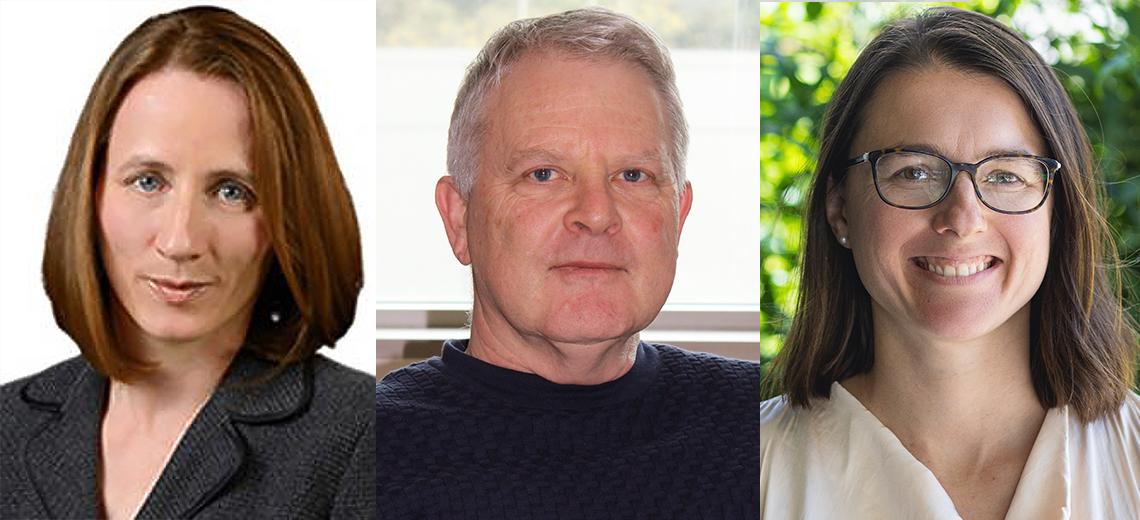
4 minute read
ANU College of Business and Economics (CBE) experts, Professor Antje Berndt, Professor Andrew Wood and Associate Professor Janice Scealy, were recently recognised by the Australian Research Council (ARC) through receipt of prestigious Discovery Projects funding.
Antje, a Professor of Finance in CBE’s Research School of Finance, Actuarial Studies and Statistics (RSFAS), will use the funding to examine the impact of COVID-19 economic-stimulus measures on corporate stakeholders.
Australia's economic response to COVID-19 saw cash injections to companies and bailouts of some insolvent firms. Antje’s project aims to quantify the market value of these government subsidies and how it was shared across corporate stakeholders.
Antje and her project collaborator, Professor Darrell Duffie from Stanford University, will also contribute to the design of financial stability regimes by developing a world-first dynamic structural model of firm assets that allows for government interventions both prior to and at default.
“Benefits extend to Australian taxpayers through the development of crucial cost-benefit analysis tools aimed at assessing, and enhancing public trust in, the effectiveness of emergency economic relief measures,” shares Antje.
Andrew and Janice, also from RSFAS, will develop new statistical methods for data with non-Euclidean geometric structure – that is, data with very complex structure, an area of research they have worked on together since 2015.
“It is exciting for us to have the opportunity to work on this ARC-funded research project. We will make use of advanced mathematical and statistical ideas and techniques, but our ultimate goal is to develop methods and software that will be practically useful in diverse areas of application,” says Andrew.
Their research and new methodologies are applicable to a wide range of non-Euclidean data types arising in many fields of science, health, business and technology. The expected outcomes will benefit a broad range of applications, including finance (predicting Australian stock returns) and the modelling of electroencephalography, geochemical and X-ray tumour image data.
“The impact of the research outcomes on health is expected to be enormous, and includes a large improvement in the diagnosis of epilepsy, as well as saving lives by providing a new suite of quantitative tools to help detect cancers quicker from image data,” shares Janice.
Antje, Andrew and Janice’s funding successes take the total number of ARC-funded projects involving CBE researchers to 18.
Associate Professor Steve Sault, Director of RSFAS, joins the College in congratulating Antje, Andrew and Janice on receiving these highly competitive grants.
“This is a fantastic outcome for Antje, Andrew and Janice and highlights the excellent research they are doing within the School. I congratulate them on receiving this ARC funding and look forward to seeing the outcomes from their respective research projects,” he says.
The College is always keen to explore research collaborations with the public and private sector and to reconnect with alumni. Please get in touch if you would like to know more about partnering with us.
